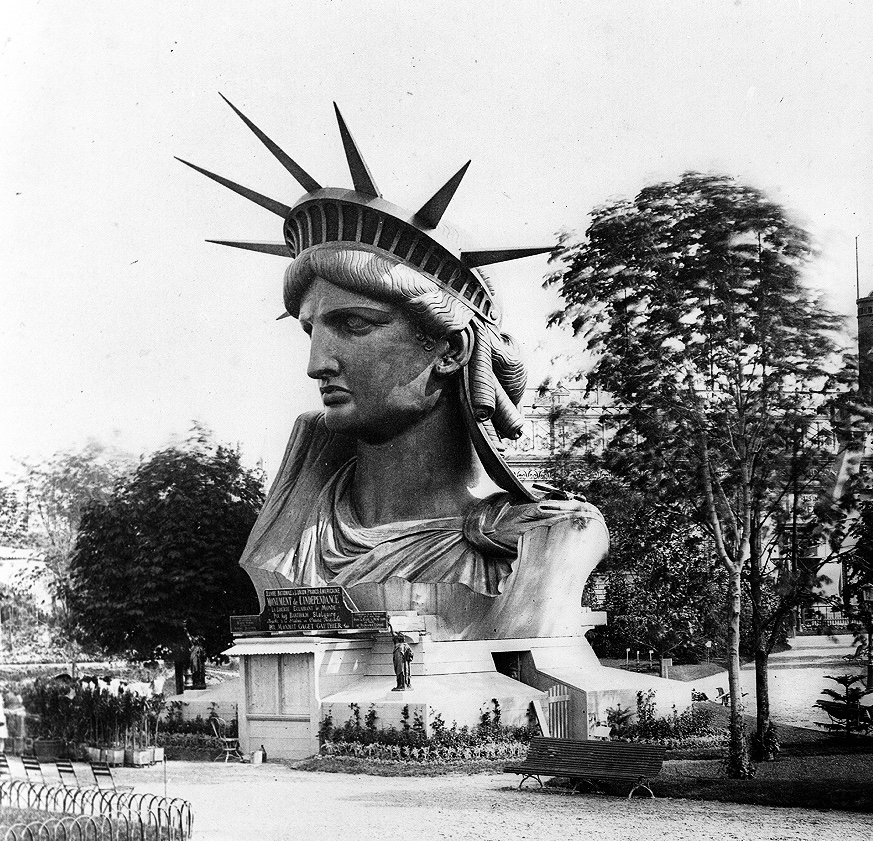
In my previous post on Chesterton, I suggested today’s secular Westerners live by dogmas— firmly convinced beliefs about the nature of existence—even though they frequently remain entirely unconscious of the fact!
This is a major theme of my first book, The Gentle Traditionalist, which argues that all this tends towards a New Secular Religion.
Now, I am well aware how fraught with contradictions that notion is and how likely it will be contested, a point I began to address last time.
For the moment, however, I will simply assert that if Christians care about the fate of the world, they need to start considering that secular philosophy functions, at very least functions, as a de facto religion.
Thus, last time, we turned to a dialogue from my book The Gentle Traditionalist to illustrate this point. And we feature another extract from that dialogue here, between GT (the Gentle Traditionalist himself) and his sceptical secular interlocutor, GPL.

Here GT has denounced modern secularism as a religion supremely certain of its dogmas – which point is then attacked by his secular friend:
GPL: As a traditional Catholic, you surely think your revelation is the same!
GT: I most certainly do! And that is my point: I belong to a religion too, just like you. My sole point—right now—is that we all have a religion, whether we realise it or not. We all have multiple beliefs—conscious or not—about the nature of existence and what kind of morals flow from it.
Moreover, we share those beliefs with like-minded others. …
We have two groupings here, two distinct tribes or collectivities. Your [Catholic friend] and I belong to one tribe. You belong to another tribe, which many post-’60s English people do. Even if pre-’60s English people didn’t and most other people on the planet still don’t.
GPL: I see what you’re driving at. But I still don’t think I’m a practising member of a religion, simply because I believe in a few basic human rights.
GT: Once again: what your tribe believes to be a right. But perhaps you mean there’s a difference because my religion has many beliefs, whilst you have limited beliefs in a few basic things like rights.
GPL: Something like that.
GT: Well, I wouldn’t be too sure. Dig deeper. You’ll find far more implicit belief in today’s secular creed, if you care to look. Also ethical commandments. “Thou shalt use inclusive language.” “Thou shalt be politically correct.” “Thou shalt not tip thy hat at the ladies and open doors for them.” “Thou shalt not smoke.” “Thou shalt not dare question liberal orthodoxy or, if thou dost, thou shalt stand condemned as an antediluvian monster.”
GPL: Okay, okay, sometimes I get worried all this political correctness is getting tyrannical. Let’s say I even agree with you—that there is some secular belief-system with its own moral imperatives—that still isn’t a religion. Religions are about God—stuff like that.
GT: Are they? A Buddhist will tell you his religion is not about God. Some will tell you Buddhism is mainly just dharma—a “right way of living,” they might say. Is secularism that different?
GPL: All right, Buddhists may not believe in God, but they still believe in something. Nirvana, maybe.
GT: Yes, they still believe in something. They have a metaphysical order from which their moral imperatives flow. Is that what you mean by religion?
GPL: Yeah, maybe—I’m no philosopher, but a metaphysical order as the basis of ethics sounds about right to me.

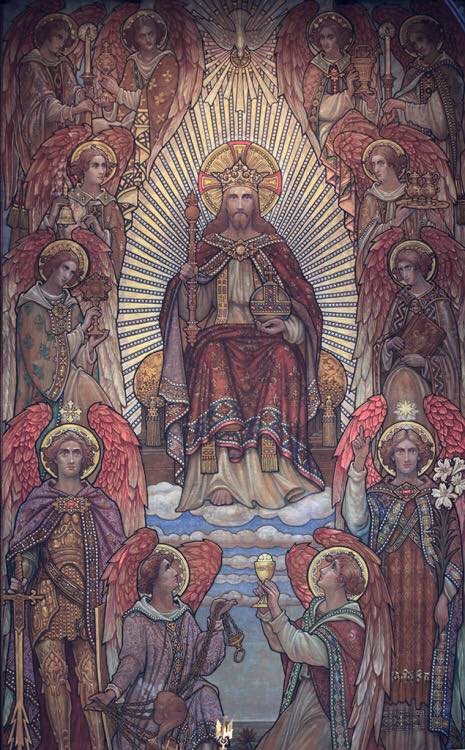
In response, GT begins to elaborate just why secularism posits – implicitly and usually unconsciously – its own metaphysical order.
This is a point we started to address last time, where GT pointed out that our views of Euthanasia are contingent on what we think of an afterlife.
For if a society presumes an afterlife in eternity corresponding to Christian revelation, then assisted suicide appears very different than it does to a society that rejects such a notion.
Both types of society inevitably possess some sort of metaphysical framework—a point I develop in my Gentle Traditionalist book.
For the moment, however, we will not split too many hairs arriving at a philosophically precise, de jure definition of religion. And, indeed, this task appears impossible given all the varieties of religion in this world—from monotheistic ones like Christianity given to worshipping a personal God to Eastern forms such as Buddhism or Taoism which negate such, but stress a right way of living.
Yes, not only is formally defining secularism as a religion beyond our scope in this post, but we are also faced with the serious problem that secularists will resist this notion to the teeth.
They resist it, I suggest, because their power depends on the very claim that secularism is not a particular religion and that it amounts instead to a fair, open and inclusive, neutral construct which everyone can or should be able to agree on.
For if secularists were ever to own up to having a religion, with its own ‘politically correct’ dogmas (which, moreover, lead to actively persecuting those who do not assent to the dogmas as heretics) the game would clearly be up!
In other words, to perpetuate their power, secularists can and must present their philosophy in non-religious terms. Otherwise, their privileges would vanish. They would simply be seen as one set of religious enthusiasts competing with others – Buddhists, Taoists, Jehovah’s Witnesses, what have you – in the global arena.
But is this fair if what is truly happening here is that secularism operates as a de facto religion with its own accepted practices and its own adherents, heretics and infidels?
Personally, I believe it is not fair and that we are facing a tremendous injustice that is usually denied or glossed over.
For today, though, I simply stay with the notion that whether one agrees or not that secularism constitutes a religion—one can plainly argue that it nonetheless functions like one.
It is to this end that we have presented these short extracts from The Gentle Traditionalist.
But now I would turn to another author, Charles A. Coulombe, who makes much the same point in regard to the particular context of America. I trust my fellow Americans will readily recognise what Coulombe evokes here:
Despite [apparent] diversity [in America] there is also a tremendous conformity, an overarching national ethos, which is best understood as a sort of secular religion.
As with all non-Christian religions, it has its foundational myths, its holy relics, its shrines, its demi-gods, and its dogmas. Central to it is a sort of worship of the nation and its institutions.
Much of the power this faith derives comes from its ongoing ability to unify in the face of the diversity we have been exploring; it takes the place for Americans of a common faith and/or allegiance to a Sovereign and his dynasty.
To understand this religion, which we shall call Americanism, we must look first at its central myth, which is a kind of sacralised American history.
In this reading, the Puritans who first settled New England were like the Patriarchs of the Old Testament and the Children of Israel. Fleeing the English Crown and its Catholically-tarnished Church, (analogous to the oppression of Pharaoh in the Old Testament), they made their Exodus across the Sea, arriving in the Promised Land. Here they had to deal with the Canaanites, who were of course the Indians. Thus far, the myth is like that of most exiled Calvinist peoples, such as the Ulster Scots of Ireland, the Afrikaaners of South Africa, and the Mormons of Utah.
But the story here becomes more elaborate; for unlike those peoples, the Americans received a New as well as an Old Covenant.
The Founding Fathers (such as Washington, Jefferson, and Franklin) are like the Apostles, with the American Revolution itself playing the role of Passion and Resurrection.
The Constitution, inspired by the Holy Ghost, is Scripture (along with the Declaration of Independence), and the formation of the government is thus an act of God Himself — whomever or whatever He may be.
Such places as Independence Hall in Philadelphia (wherein the Sacred Documents were signed), the Freedom Trail in Boston, and the White House, Capitol, Washington and Jefferson Monuments, and the Lincoln Memorial in Washington, D.C., are Holy places, much like those in Rome, Jerusalem, or Mecca.
The Civil War becomes itself a redemptive act, whereby the sacred Union was saved by the heroism of a Saviour-figure, Abraham Lincoln (there is still a parallel Confederate tradition which was strong in the South until the 1970s, but it was sort of a dissenting sect, rather like Shiite versus Sunnite Muslims; its holders too venerated the Pilgrims, Washington, et al.).
So formed by God, the United States are the shining city on the hill, beacons of liberty for an oppressed and heathen world, and the last, best hope of Mankind.
Here, belief in any other faith or none is fine, so long as such belief disagrees neither with the national mythos nor with the other doctrines of the tribe.
Among these is the notion that conduct is more important than creed. But there are others. From the Calvinism of the Puritans came the idea that that those whom God has chosen for salvation (through no effort of their own) will be blessed by Him in this life; since we cannot know precisely who is among this elect, we must strive mightily to achieve wealth, to demonstrate our goodness. This is known as the Puritan work ethic.
With time, this idea has been secularised and sublimated into the American mind, with certain concrete results: the acquisition of wealth is unconsciously sacramental; the poor are inherently stupid or wicked; and anything that is not obviously profitable — the arts and humanities, for example — are suspect of being unworthy of pursuit by “decent” people because “impractical.”
More from Coulombe on this very serious topic can be found here.
I say ‘very serious’ because what Coulombe admirably describes, raises extremely grave questions.
For example, we can take the much vaunted American notion of the separation of Church and State. And we might ask: how valid is that notion, if the real truth of the matter is that the modern secular state is not so much separated from religion, but rather deeply attached to its own form of religion, a religion that is denied …?
Here is subject matter for future posts, though there may be, first, detours into other topics and thus our series may not proceed in successive, chronological order.
Finally, for those who may be interested, further extracts from The Gentle Traditionalist on secularism, the New Age and other modern horrors can be found here in an archive of posts dedicated to my book.
Foreword for Monarchy by Roger Buck
Buying Books at Amazon Through These Links Gives Us a Commission. This Supports Our Apostolate. Thank You if You Can Help Us Like This!

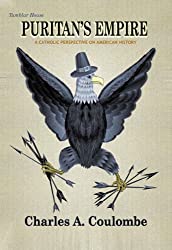
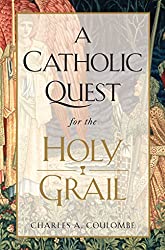
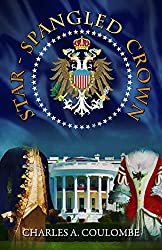





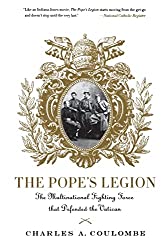
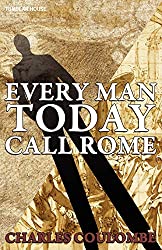
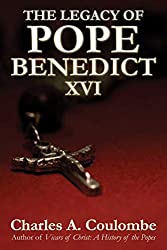
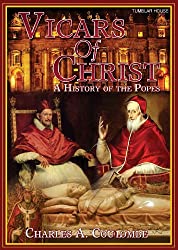
Comments
comments are currently closed
4 responses to “Christian Religion or Secular Religion?”
Thank you for the insights Roger – great stuff. Keep it going. Here’s a link to a new blogg you might enjoy: http://www.vivaimmaculata.com
God bless.
Robert
Robert, please forgive how belated this is. As long time readers know, I can be terribly, terribly slow. However, Kim and I have been very moved by your new blog – as I tried to express in a comment at your site. Also, now that you are in Ireland, I’ve added a link to your fine effort amongst the other Catholic blogs listed at the bottom of the site.
May God greatly bless you in this new work …
I believe one of the keys here is the Profession of Faith for Christians as opposed to the nebulous beliefs of unrecognized secular religiosity. The profession of faith for Christians recognizes Jesus Christ as the centerpiece of earthly creation. Secular beliefs refer to historical events, documents, cultural mores, epistemological norms, feelings, expectations, language cues, and so forth. The Good News and those that profess it are assured of all the promises made by Jesus Christ which is the most significant belief that can be held by any creature. Christians must navigate through varying cultures while grounding themselves in timeless truths meaning that even the Church goes through cultural shifts, but the truths of the Gospel will stand until the end of time. Is there any cultural belief that holds the same level of timelessness? Perhaps, as society progresses we will discover and accept that the basis of all society is in fact the truths as proclaimed in the Gospels and Christianity will not be seen as a choice among many choices of the politically protected freedom of religion, but as the very fabric of existence holding all things together?
The lost want to protect their right to be lost! The Founding Fathers of America could not bring themselves to a profession of Jesus Christ and so the secular deist religion is built into the very beginning of America as a secular religion. We can conflate the meaning of religion to show how all people hold what we can call ‘religious’ beliefs, but in a sense we are only playing with words. We could completely change the name of ‘Christianity’ to ‘Goobelyglop’ and it would not change the nature of the profession of Jesus Christ. Language can change as much as culture and playing language games is a preferred technique of the ‘secular religions’. Evangelicals often lack intellectual sophistication, but they at least stick to the profession of Jesus Christ as the centerpiece of all Christianity. The mysterious streams of God’s workings are difficult to discern, but if we reflect on the birth of the Hebrew people from Egypt we can receive great revelations about how God is reflected in both sides of the equation between believers (Isrealites/Christians) and Non-Believers (Egyptians/Secular Religionist). America, which will play a critical role in the future of Christianity, whether its demise or flourishing, is a young nation too tender as of yet to mature into its Christian future. The ‘freedom’ granted citizens via political rights is a beautifully dangerous way for God to allow the flock to mature. Is it not staggering how a small band of Israelites defeated the Egyptians? The power of secular religion is immense right now, it is an Egypt ready to crush us and Jesus Christ is perhaps the most offensive proclamation against it. How the sea of secular religion is parted will be a great chapter in America’s Exodus. We must go through this incredibly risky time where secular religion holds so much power in order to widen the possibility of more freely choosing to join the sheepfold…